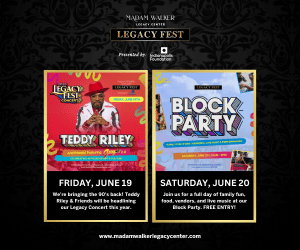For many African-Americans, the barbershop, along with the Black church, has been an important cornerstone of the community for generations.
That is a statement longtime customers such as Clayton Jordan would agree with. He has enjoyed going to the barbershop all his life.
“It has always offered an opportunity for people to exchange views, ideas and stories,” Jordan said while getting a hair cut at Moore’s Barbershop on the city’s Eastside. “You might say something of interest, and if you listen you might learn something. Also, sooner or later you will meet someone of value.”
Robert Moore, who owns the shop and has been Jordan’s barber for decades, agreed.
“People from every walk of life in the Black community come through the barbershop,” said Moore, who has been in the trade over 50 years. “You get to know everything and the pulse of the whole neighborhood.”
For Jordan, the barbershop is also important because he remembers how, while stationed at an ammunition depot overseas during World War II, Black servicemen could not go to licensed white barbers, and had to get someone else on the base to cut their hair. Back at home, racial segregation was as prevalent among barbershops as it was in other parts of society.
“For a long time this was the only place we could be groomed,” Jordan said. “That’s why so many special bonds were formed.”
Indiana has required licensing for barbers since the 1930s, and fortunately, by the 1950s a growing number of Blacks were able to become licensed and open their own shops after receiving training, mostly from the former Poro Barbering School and Wood Vocational Training High School. Wood, Moore’s alma mater, closed in 1978, but was ahead of its time with its barbering program, allowing Black and white students to train side-by-side.
However, the barbering industry itself remained segregated for another decade, with white and African-American barbers maintaining separate labor unions until minorities were invited to integrate during the mid-1960s.
Recently, Moore hosted a special celebration at the Indianapolis Baha’i Center that reunited many of the surviving African-American barbers and stylists who were active during that era. During the celebration, barbers and local residents of various ages shared memories of how much barbershops have meant to them.
One of the barbers who appreciated the recognition was Owen Cheatham, who became licensed in 1949 and retired 48 years later after operating a shop at 3828 N. Illinois St.
“It means a lot because over the years (Black barbers) had a lot in common, a lot of camaraderie and concern for one another,” Cheatham said. “Public service to our community has always been very important to us.”
Moore fondly recalls how barbershops have provided a venue for residents to speak out on various issues affecting the community, such as voter registration and the construction of Interstate 65, which many opposed because part of it displaced residents who lived in a predominantly Black area of the city.
Also, customers can utilize barbershops as a virtual “bulletin board” and frequently find information about entertainment, activities, higher education and ways to prevent health challenges such as hypertension, HIV and various forms of cancer.
“It has always been the place to get information on all kinds of things,” Moore said. “The barbershop has had a positive impact on the community, and the community has had a positive impact on the barbershop,” Moore said. “They have always worked together in a positive way.”
Over the years, many young people who were inspired or shaped in some kind of way by what they experienced and learned in barbershops have grown up to become doctors, lawyers, ministers, politicians and other types of professionals.
One of them, City-County Councilman Monroe Gray, holds a special place in his heart for barbershops.
“They are the backbone of the Black community,” he said. “They provide a place where a Black man, and people in general, can truly express what they think about the issues. You can give your opinion and get some advice, and that’s very valuable.”
Any bond that exists between the community and African-American owned barbershops is there because barbers have long realized that it takes more than just cutting hair well to be excellent and keep customers coming back. You also have to appreciate people and the things that make them and their situations unique.
Barbers have to be advisors, counselors, diplomats, life coaches and youth mentors, sometimes all in the same day.
“You really have to enjoy helping people, and I like that everyone is treated like a person and the same at the barber shop,” said Jake Lewis, who operates Jake’s Barbershop on the Westside. “Another thing I enjoy is being a positive influence and role model for youth, especially those without fathers.”
When asked if there are any other special requirements for being a good barber besides whipping up a stylish cut, Lewis smiled and added, “You have to know sports. If you don’t, it’s going to take a while for you to build your clientele.”
Next week: The Recorder continues to look at the barbershop’s impact on our community. Meet a local family who has been cutting hair for three generations, and hear about the experiences of women in barbering.








